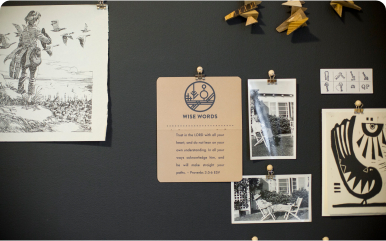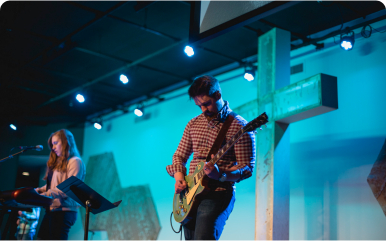October 5, 2015
When Does Dignity Begin…Or End?

Know that the Lord, he is God! It is he who made us, and we are his; we are his people, and the sheep of his pasture.
Psalm 100:3
Dignity can be a bit of a complex issue. It may seem like a fairly simple and straightforward issue at first, but as you dig a little deeper, the challenges begin to surface.
When exactly does someone begin to have dignity, and when, if possible, does someone lose it? When does it start and when does it end? The difficulty is particularly evident in the debate of determining the “worthiness” and associated dignity in the bookend stages of life—birth and death.
On one end, in the earliest stages of life, it’s clear to see by the ongoing and raging argument over when life begins that there is no one commonly held understanding as to where life begins, let alone determining where the point of possession of value, honor, and respect begins.
In similar fashion, when you look at the late or final stages of life, there is definitely no commonly held belief as to when life fails to be worthy or possessing of dignity. Some would argue that, for someone to die with dignity, they should be allowed to determine when the end of their life occurs—when the elements which most tightly define who they are and what gives them value cease to exist.
In a highly publicized case in 2014, faced with terminal brain cancer, 29 year old Brittany Maynard chose to end her own life through medically assisted methods citing her inability to maintain a certain quality of life as well as not wanting to put her family through a drawn out death (5).
In a more recent case, Vincent Lambert, a tetraplegic former nurse has been at the center of several highly publicized legal battles. According to an article, “his Doctors, wife, and six of his eight siblings, say that the real Vincent Lambert died seven years ago in a road accident. They insist that he is unaware of his fame and, strictly speaking, unaware of anything. He should be allowed to die in dignity.” (6)
In yet another case, a woman named Gill Pharoah, 75, who was seemingly healthy with no medical conditions decided to travel to Switzerland and end her life. As her partner is quoted, she (Gill) “disliked the ‘indignity’ of ageing.” (7)
While in no way would I marginalize or even attempt to understand the painful decision that each person faced in these three cases, it is pretty clear that the definition of what constituted dignity was either personally determined or contested in the case of Vincent Lambert.
Being then God’s offspring, we ought not to think that the divine being is like gold or silver or stone, an image formed by the art and imagination of man.
Acts 17:29
It’s pretty easy to see the difficulty that arises from allowing people and culture to define dignity and what is worthy of honor and respect. By allowing people to define the worthiness of someone, you make the issue completely subjective and left for each individual to decide, and most people have, and will continue to have differing opinions of what constitutes being worthy of honor and respect.
As Christians we have another way to define what is being worthy of honor and respect.
So God created man in his own image, in the image of God he created him; male and female he created them.
Genesis 1:27
At Riverview we believe that we are created by God in His image and likeness. We are the “Imago Dei,” or the image of God. A reflection of God’s qualities, attributes, and characteristics. And just as God is worthy of honor and respect, we, as His image bearers share in that right—not because of something we have done, but simply because we reflect Him. It is not something we earn or something that can be removed from us due to age or action. It simply, is.
So, as a Christian, we can rest in the fact that there is a definite and objective answer as to what characteristics and qualities define our dignity, value, and worth.
I find great solace in knowing that my dignity is not found in the things that I do or don’t do, the things that I say or don’t say, but in the immutable fact that I have been created by God, in the image and likeness of God, to the glory of God.
This has been excerpted from the book Credo. DOWNLOAD A COPY, or get a physical copy for free at your venue’s info center!
Quick Links
- Connect
- Prayer
- Give
- Life Group Material
- Serve





























